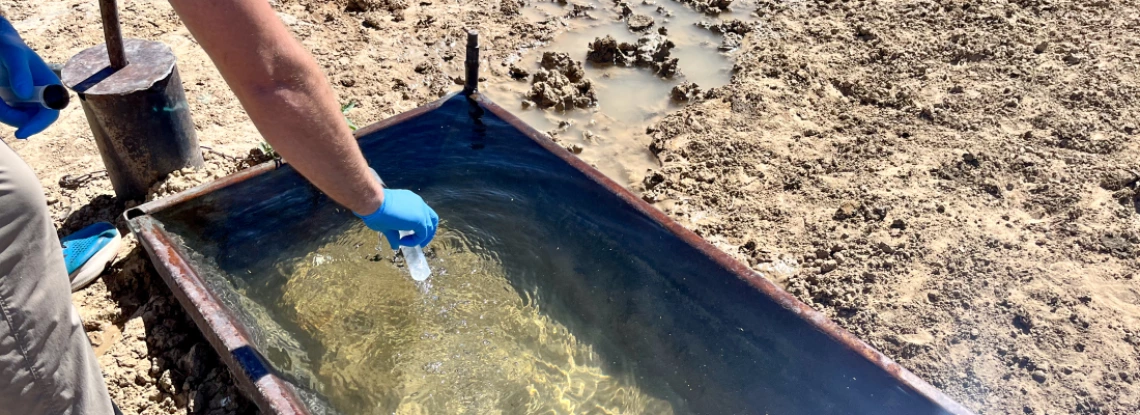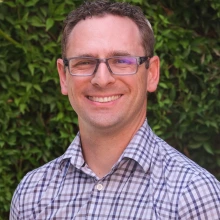Community-led Indigenous environmental health in the American Southwest
A $6 million NIH grant will support partnerships with Indigenous communities and CALES researchers

Environmental Science faculty Joseph Hoover takes a water sample during a previous community-led research project

Joseph Hoover
If research is to bring lasting change in communities, according to Environmental Science professor Joseph Hoover, projects should be driven by the community members and supported by research institutions. This is exactly how Hoover and his partners will be working to promote Indigenous resilience and health in the Southwest.
The Albuquerque Area Indian Health Board, Inc. recently received an NIH award for the project, “Indigenous healthy homes and healthy communities: A community led initiative to improve health and support Indigenous Resilience in the US Southwest.” The project is led by the Albuquerque Area Southwest Tribal Epidemiology Center (AASTEC), with Hoover and his team working in support.
The award program, Community Partnerships to Advance Science for Society (ComPASS), drives community-led research by dictating that all project leads need to be community organizations, like AASTEC. Hoover said this style of research is most beneficial to the community in the long run.
“If we can facilitate people in the community who have a much stronger investment in improving it in a way that works for them, then those projects tend to live on a lot longer and the results tend to be a lot more positive,” Hoover said.
The project will kick off with an open call to communities throughout the Southwest who are interested in participating. Once they are identified, community members will be trained by University of Arizona researchers on how to collect data, which will be used to identify environmental health risks and other stressors on the community.
Tara Carr, professor at the University of Arizona’s College of Medicine, will also be assisting in this project, specifically looking at respiratory health and asthma in these communities.
ComPASS awards are structured in three phases. The first phase, which the team was awarded $6 million over five years for, will focus on building partnerships and creating a pilot research program to test methodologies. Eventually the team will move on to phase two, expanding the pilot program into a full implementation across communities, and then to phase three, assessing and disseminating findings to create a template for communities across the country to follow.
Community-led research is not new to Hoover, and neither is his partnership with the project’s principal investigator, Sheldwin Yazzie. The pair have spent several years conducting community-led research together after initially meeting while working at the University of New Mexico. Hoover said their research styles and missions fit together perfectly as they continue to serve Southwest communities.
“The ComPASS program is great for us,” Hoover said. “This is exactly what we've been trying to do — it's right at the intersection of public health research and public health service.”
